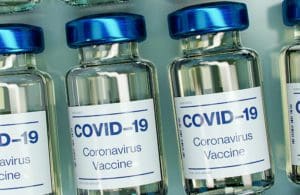
[Photo by Daniel Schludi on Unsplash]
The study, published in Nature, revealed that those who received the two-dose mRNA vaccines developed by Pfizer/BioNTech and Moderna could provide immunity for years or even a lifetime in those who were infected with COVID-19 and vaccinated later. However, it remains unclear if vaccination alone has the same long-lasting effect for those who were not infected with the virus beforehand.
Washington University (St. Louis) immunologist Dr. Ali Ellebedy and colleagues conducted the study, finding that those who survived COVID-19 retained immune cells that recognized the virus in the bone marrow for at least eight months. Another team’s study showed that those “memory B cells” continue to mature and get stronger for at least one year post-infection.
The team found that, 15 weeks after the first dose of the vaccine, the germinal center that forms in the lungs after COVID-19 infection was still active in all 14 study participants without any decline in their memory cell tally.
“It’s a good sign for how durable our immunity is from this vaccine,” Ellebedy told The New York Times.
The New York Times surmised that the results indicate that most vaccinated people will have long-term protection against existing variants, although older adults and those with certain vulnerabilities may need booster shots, while those who had COVID-19 and were later vaccinated may never require one.
Filed Under: clinical trials, Drug Discovery, Drug Discovery and Development, Infectious Disease





Tell Us What You Think!
You must be logged in to post a comment.